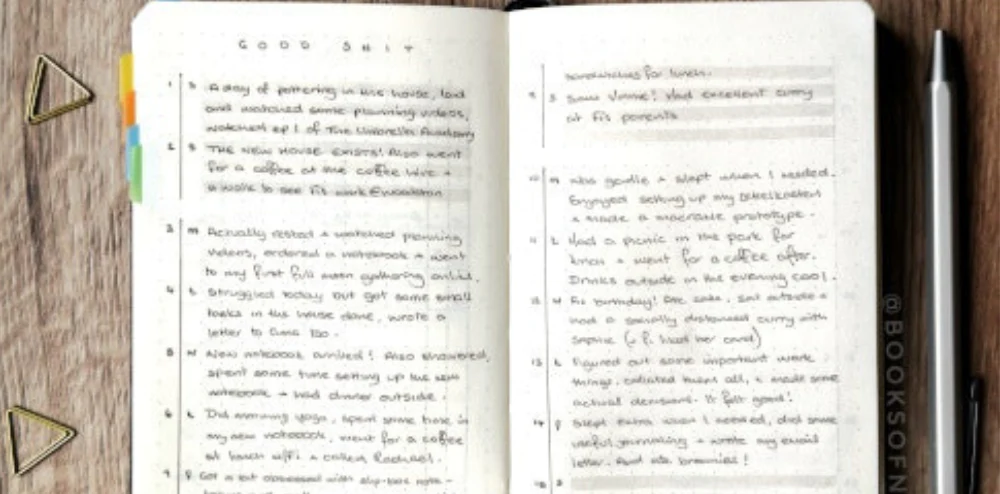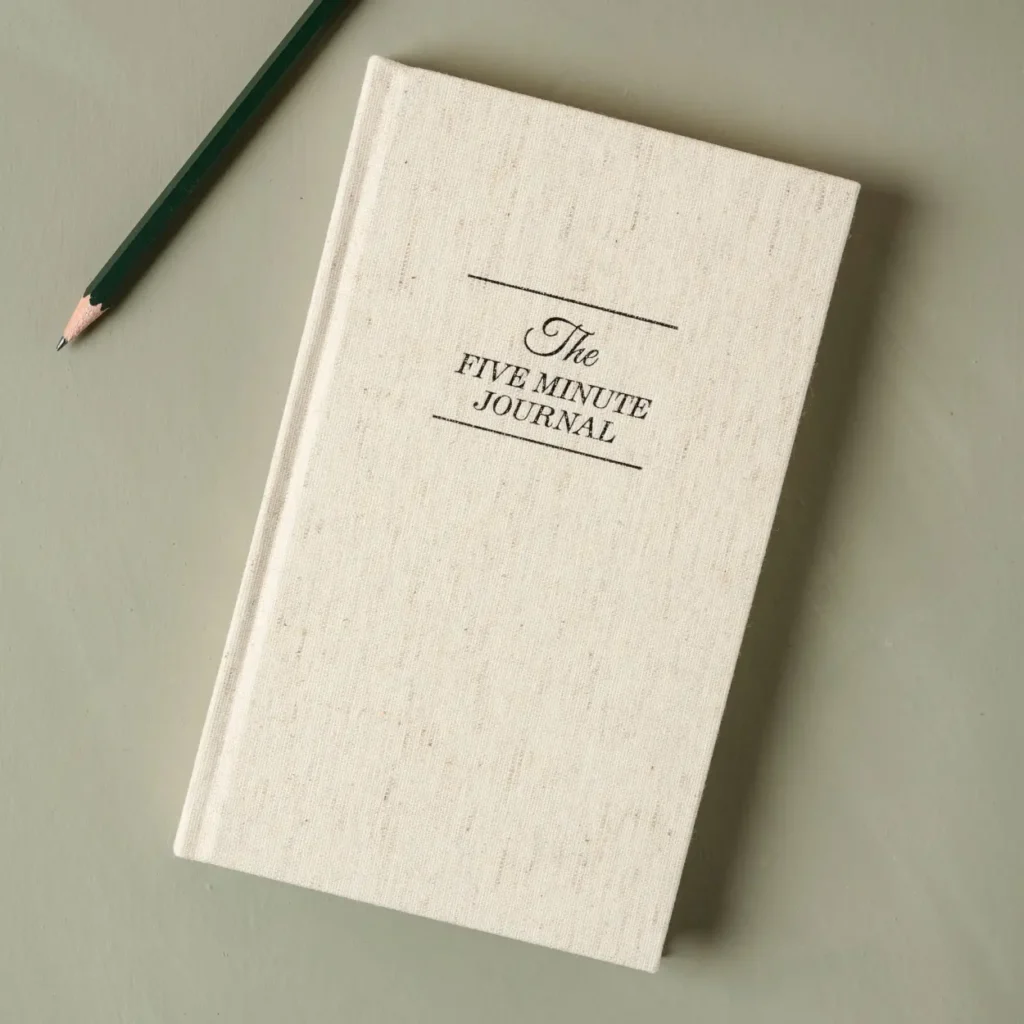
8 Ways to Start a Journal This Year
I am always amazed by the people who have consistently kept a journal documenting their lives. Keeping a daily diary or journal is a habit that many renowned men and women have made throughout history.
A journal is a form of personal record keeping of events, experiences, observations, and even lessons learned, done regularly. Some forms of journals include a personal diary or journal, a work journal, or an academic journal.
I started my journaling journey a decade ago using a paper journal, a Moleskine, and now converted to digital notes and a small notebook. Moreover, my journaling practice has served as a place to self-reflect, document my life, and write down ideas that inspire me throughout the years.
There are many benefits to keeping a journal:
- Writing in a journal can help us process and reflect on our thoughts and feelings. Furthermore, it can be a way to make sense of difficult experiences or to understand our emotions better.
- A journal can be a creative outlet and a way to express ourselves. Additionally, it can be a place to write down our ideas, hopes, dreams, and goals.
- Keeping a journal can help us improve our writing skills and be an excellent way to practice self-reflection and self-improvement.
- A journal can be a place to document our personal and professional growth. We can look back on our journal entries to see how far we have come and to set new goals for the future.
- A journal can be a way to preserve memories and document important events in our life. We can look back on our journals to remember the details of a special trip or to recall the emotions we were feeling at a particular time.
Keeping a journal can be rewarding and therapeutic, allowing us to reflect on our thoughts, feelings, and experiences. Therefore, here are 8 tips to help you get started in writing and keeping a journal this new year.
1. Set a regular time to write.

Choose a time each day or week to sit down and write in your journal. Consistency can help to make journaling a habit. We can start by setting aside 5 or 10 minutes a day to write in our journal as a great habit to start. Consistency is key. It takes 30-60 days to do something until it becomes an embedded habit, so take that time to journal every day or any set of days until it becomes a habit.
2. Choose a format that works for you.
There are many different ways to keep a journal, including writing by hand, typing on a computer, or using a digital app. Choose the format that works best for you. For example, I personally use a paper notebook like the Panda Journal to write my journal. And I have also used a Moleskine and a Leuchtturm1917 notebook in the past. For electronic journaling, I recommend Obsidian or Day One App which I use with my laptop and mobile devices.
3. Write about anything and everything.

There are no rules when it comes to journaling, so feel free to write about whatever is on your mind. You might want to reflect on your day, explore your feelings, or set goals for the future. And the key factor is the freedom to write in our own journal about anything. Coupled with the idea that our journal is a place we can document and share our thinking freely.
4. Be honest and authentic.
A journal allows you to be honest and authentic, so don’t worry about writing perfectly or censoring your thoughts. Additionally, we do not need to edit what we write in our journals because it is ours to consume. And obviously, we must ensure to write legibly or type structured sentences we can understand, but throw out the rules. If you prefer to write haikus or shorter fragmented sentences, do so. Equally, the most vital thing is to be authentic and honest when writing because we will use our journal as a form of self-reflection.
5. Write for yourself.

The audience of your journal is yourself. Therefore, we must remember that our journal is for our own personal reflection and growth, so don’t worry about what others might think. We don’t need to impress anyone in our journal. The key is to be free and write for ourselves.
6. Make it a relaxing and enjoyable activity.
When we write in our journal for the very first time, we may not know what to write about. However, choosing a comfortable and quiet place to write will help. As a matter of fact, some people use scented candles to kickstart their journaling process. And others write in their journals after meditating in the morning or getting into bed at night. The idea is that journaling should be a relaxing and enjoyable activity.
7. Free your inner critic.

When we write in our journals, we should disregard grammar and spelling rules if we want. Likewise, we have to freely write our thoughts as they come through. And the focus of journaling should be on the thoughts, ideas, and feelings we have inside us that must come through to the page. It is not perfection. Since we freely express ourselves on the page, we can benefit from our journaling practice.
8. Reflect on your writing.
Now that we have collected pages of thoughts, we can take a few minutes to reflect on what we have written. Additionally, we may want insights on a situation or highlight observations that stand out to us. Further, we can set goals based on what we have learned about ourselves. In other words, the key to a journal practice is to reflect on ourselves, and it’s a way to get to know ourselves.
Furthermore, here are 8 books that can inspire us to develop and maintain a journaling practice:

- “The Artist’s Way: A Spiritual Path to Higher Creativity” by Julia Cameron: This book offers a structured program for discovering and recovering your creative self, including daily writing prompts and exercises.
- “The Five Minute Journal: A Happier You in 5 Minutes a Day” by Intelligent Change: This journal provides daily prompts and positive affirmations to help you focus on gratitude and mindfulness.
- “The Diary of a Young Girl” by Anne Frank: This classic journal chronicles the life of a young girl during the Holocaust, and is a powerful example of the transformative power of writing.
- “Writing Down the Bones: Freeing the Writer Within” by Natalie Goldberg: This book offers practical advice and writing exercises to help you tap into your creative voice and develop a daily writing practice.
- “The Little Book of Mindfulness: 10 Minutes a Day to Less Stress, More Peace” by Patrizia Collard: This book offers a variety of mindfulness exercises and prompts, including journaling, to help you cultivate a sense of calm and clarity.
- “The Daily Stoic: 366 Meditations on Wisdom, Perseverance, and the Art of Living” by Ryan Holiday: This book offers daily meditations on Stoic philosophy, including journaling prompts and exercises.
- “The Journal Keeper: A Memoir” by Phyllis Theroux: This memoir chronicles the author’s journey of self-discovery through journal writing, and offers insights and inspiration for keeping a personal journal.
- “The Writing Life: Writers on How They Think and Work” by Marie Arana: This collection of essays by writers offers insights and inspiration for writers of all levels, including tips on how to keep a journal and develop a daily writing practice.



